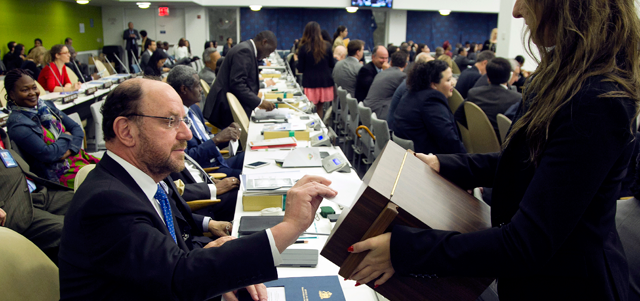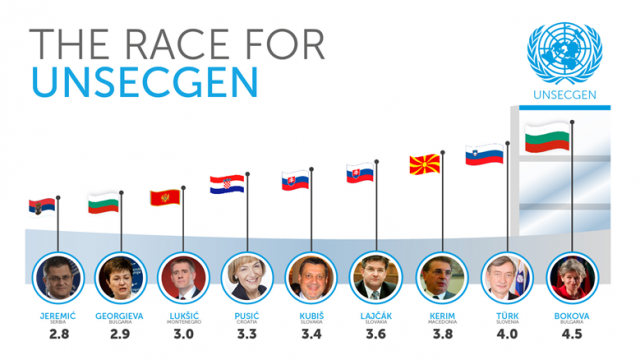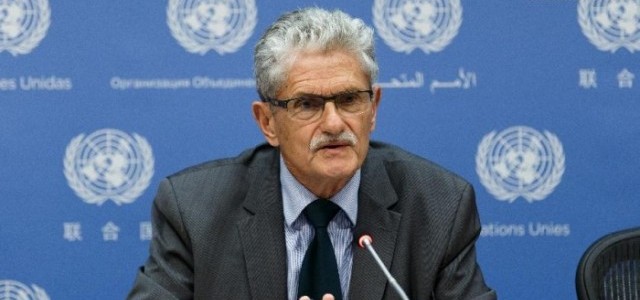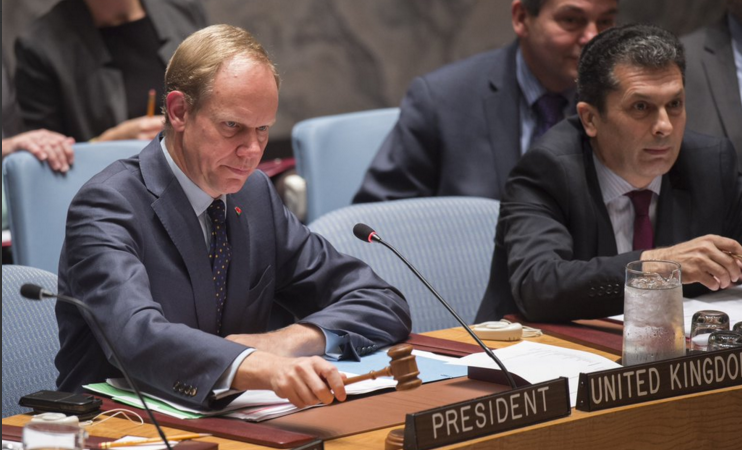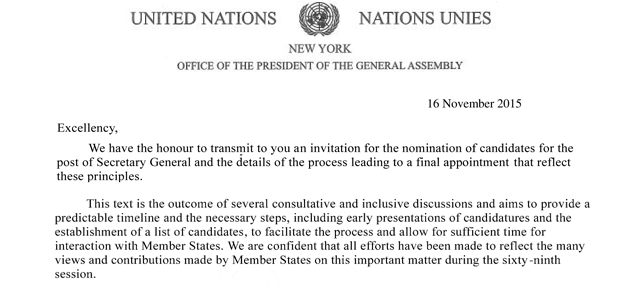UPDATE: After easily securing a seat in a closed slate run for the Asian region, Saudi Arabia has decided to reject its own win. More forthcoming…
Today’s contest for five non-permanent seats on the UN Security Council offered no surprises. The closed slates described in last May’s article remained in place, other than a short-lived candidacy by the Gambia that was quickly withdrawn after Nigeria’s bid was endorsed by ECOWAS and supported by other states.
The final vote tally was
| Region | State | Votes received | Previous Council experience1 |
| Africa | Chad | 184 | Never served |
| Nigeria | 186 | Four times (1966-67, 1978-79, 1994-95, 2010-11) | |
| Senegal | 2 | Twice (1968-69, 1988-89) | |
| The Gambia | 1 | Once (1998-99) | |
| Asia | Saudi Arabia | 176 | Never served |
| Lebanon | 1 | Once (1953-54, 2010-11_ | |
| Eastern Europe | Lithuania | 187 | Never served |
| Croatia | 1 | Once (2008-09) | |
| GRULAC | Chile | 186 | Four times (1952-53, 1961-62, 1996-97, 2003-04) |
1 Security Council Report, Special Report on Security Council Election 2013; UN, Countries Elected Members of the Security Council membership
With Gambia’s exit, Nigeria walked to a win for one of the two African seats. It will succeed Togo in the inter-regional rotation for western Africa. The other African seat, representing central African states, went to Chad.

Along with Africa, each of the other regional groups presented a clean slate, with one candidate each for the three open seats. Chile will assume Guatemala’s seat for the GRULAC region, Lithuania will take over for Azerbaijan in Eastern Europe, and Pakistan will vacate the Asian-Pacific seat in favor of Saudi Arabia. (Saudi Arabia will also hold the seat that goes to an Arab state under a special agreement between the African and Asia-Pacific groups which trade it off every other election.)
All five candidates secured well over the necessary 2/3 majority of votes to win election. Saudi Arabia received the lowest tally, 176 out of 191 valid ballots (just over 92%). Lithuania, the first Baltic state to serve on the Council in the organization’s 67-year history, was supported by all 187 of voting states.
Nigeria and Chile, elected to the Latin America and Caribbean seat, have each served previously on the Council four times, though never concurrently. Chad, Lithuania and Saudi Arabia will be joining the Council for their first time. All five will begin a two-year term on 1 January 2014.
In addition to the formal, endorsed candidates, four states received votes in the final count — Senegal, the Gambia, Croatia and Lebanon. These were almost certainly vanity votes, cast by the states themselves, as a meaningless but amusing gesture.
The closed slates prevented any serious consideration of the candidates’ records on human rights, nor their potential for contributing to the maintenance of international peace and security. Chad, for example, has defied both the Council and the International Criminal Court in twice hosting Sudanese president and ICC indictee Omar al-Bashir in contradiction to its obligations under the Rome Statute. The Gambia’ s bid raised hopes that other state parties to the statute could rally behind an alternative to Chad (and push back against the AU’s internal divvying up of seats outside the larger UN membership). But its withdrawal left General Assembly members little choice short of denying Chad the required 2/3 majority vote and potentially exacerbating the already strained African-ICC relationship.
Mark Goldberg writes at UNDispatch that the region’s internal regional rotation and the acceptance of closed slates by the rest of the international community
“…undermines the UN system by denying General Assembly members the option of voting for countries that deserve UNSC membership, rather than rubber stamp what is in front of them. This can have real-world consequences.”
With Africa offering other UN members no choice, for example, he notes “…Chad doesn’t really pay a price for its defiance of the Council.” Continuing, he suggests that acceptance of closed slates in Security Council elections should be ended.
“We really ought to get to the point where every non-permanent seat is contested. There is prestige and power conferred by membership to the Security Council. Most of the Council’s work proceeds by consensus, which gives any individual member a great deal of power. Non-permanent members do not have the veto, but they can and do steer the work of the Council.”
He will get no argument from this author.

